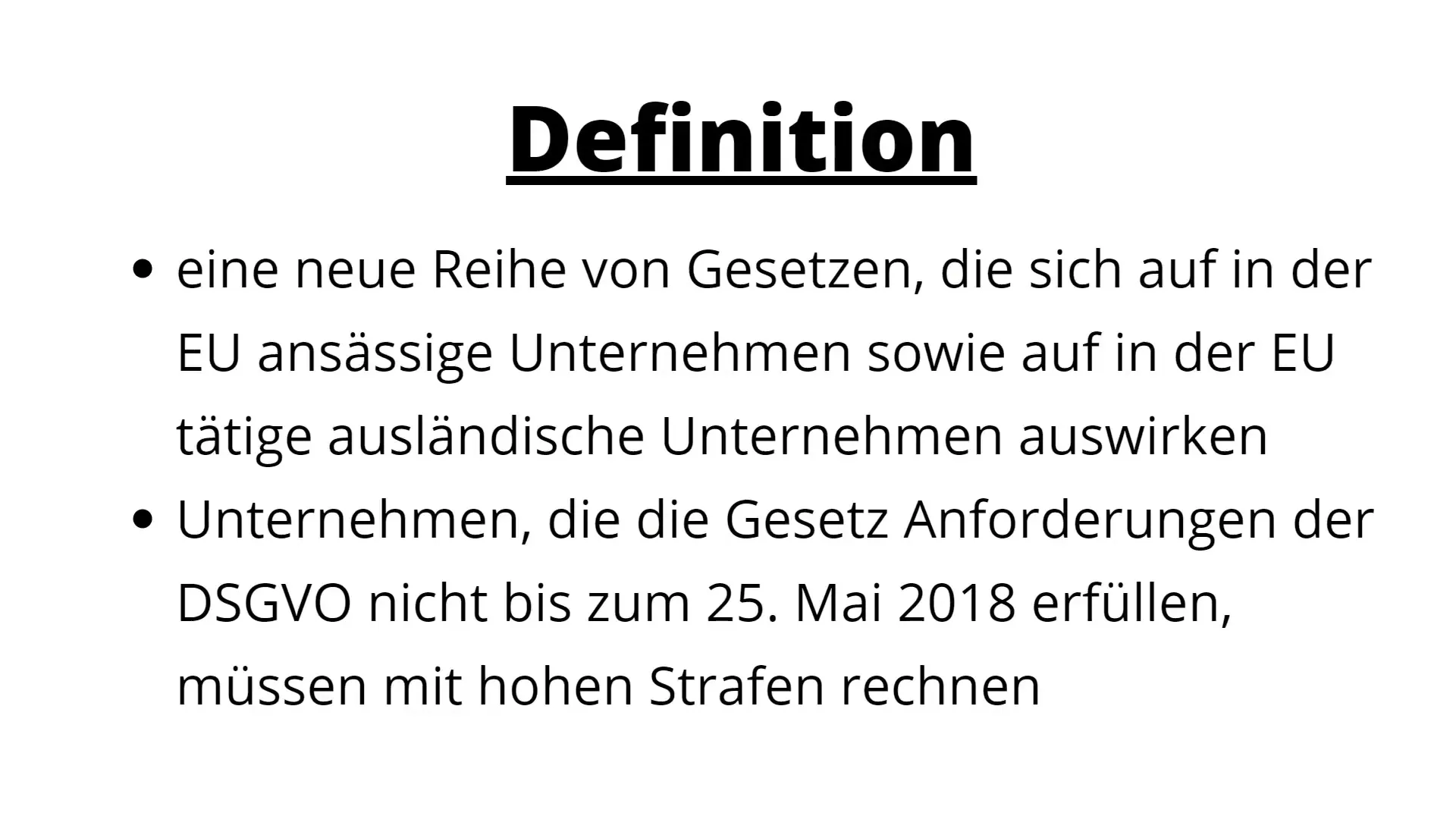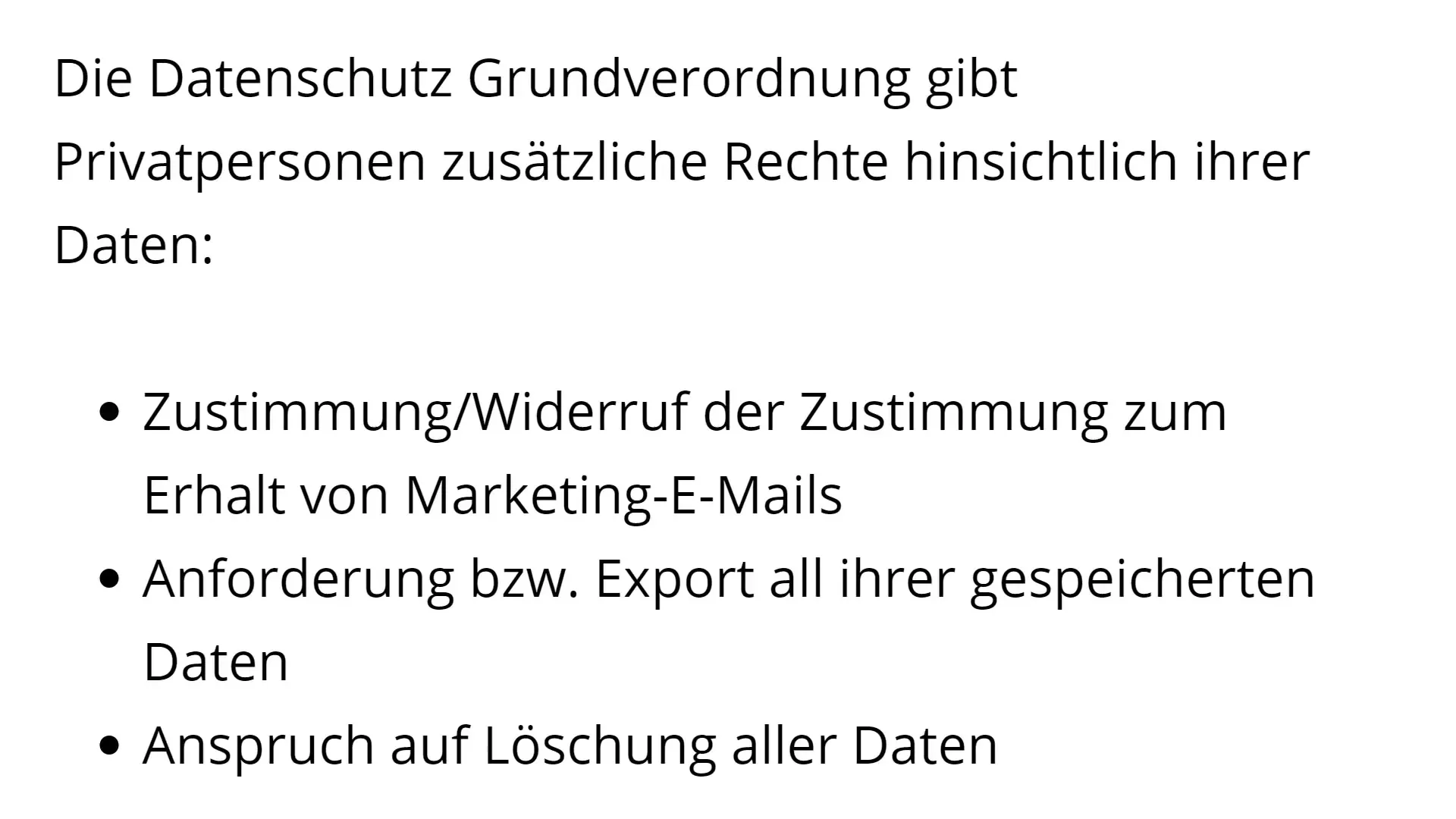In this tutorial, I want to introduce you to the basics of the General Data Protection Regulation (GDPR). The GDPR is a topic of great importance for many companies and individuals. It regulates the handling of personal data in the European Union (EU) and protects the rights of data subjects. Let's explore together the key aspects of the GDPR and understand how it affects you and your work.
Key Insights The GDPR came into effect in May 2018 and introduced a series of regulations regarding the handling of personal data in the EU. It affects not only companies based in the EU but also those that offer services or goods to EU citizens. The key rights available to you as an individual include the right to consent to marketing emails, the right to access your stored data, and the right to have this data deleted.
Overview of GDPR
To properly understand the GDPR, it is essential to explain its basic definitions and objectives precisely. The General Data Protection Regulation was implemented by the European Union in 2018 to establish uniform guidelines for handling personal data within all EU states. The GDPR regulations are intended to ensure that personal data of EU citizens is protected and effectively managed while also ensuring free data flow within the internal market.

The GDPR replaces the previous 1995 directive and has introduced many new legal frameworks that are important for both EU-based companies and foreign companies operating in the EU. Therefore, whether you run a business within the EU or simply conduct business there, the GDPR applies to you.

Businesses that fail to meet the GDPR requirements by the specified deadline on May 25, 2018, can expect substantial penalties. This is an important note that should not be overlooked, as the consequences can be significant. The regulations that have been introduced are now more or less firmly entrenched in the business world.
Individual Rights
One of the most significant changes brought by the GDPR is the strengthening of individuals' rights regarding their personal data. The following three main rights are particularly important for you:
First, you have the right to decide on consent and withdraw consent for receiving marketing emails. You can choose whether you want to receive marketing newsletters. There are legal requirements that oblige companies to give you the option to unsubscribe from the newsletter – often by providing a simple unsubscribe button.

Second, you are entitled to have all your stored data provided upon request. This means that you can demand companies to provide you with a copy of the data they have stored about you.
Third, you have the right to request deletion of your data. However, you can exercise this right only if you have not previously consented to the use of your data for specific purposes. For example, if you have consented at a company for €150 that your data can be used for marketing purposes, you cannot later insist that your data be deleted simply because the company has generated significant revenues from it.
Data Protection in the Office and Online
In today's digitized world, data protection in the office and during online meetings is of utmost importance. If, for example, you are responsible for online meetings or work as a teacher in online classes, it is important to understand and comply with the GDPR protocols.
Compliance with the GDPR in the office requires, among other things, introducing appropriate technical measures to ensure the protection of personal data. This can be done through encryption, access controls, or anonymizing sensitive data. Additionally, you should regularly carry out training sessions for yourself and your colleagues to raise awareness of the importance of data protection.
In general, the more you know about the GDPR and the better you understand the regulations, the better prepared you are to comply with the regulations and respect the rights of data subjects.
Summary
The GDPR is an important framework that regulates the protection of personal data in the EU. The fundamental rights of users - such as consent to marketing emails or the right to data deletion - play a crucial role in everyday business. Data protection in the office and during online meetings must always be observed in order to comply with the requirements of the GDPR.
Frequently Asked Questions
What is the GDPR?The General Data Protection Regulation (GDPR) is a regulation of the European Union that regulates the handling of personal data.
Who does the GDPR affect?Both companies based in the EU and companies outside the EU that offer goods or services to EU citizens.
What are the main rights of individuals under the GDPR?Individuals have the right to consent to marketing emails, the right to access their stored data, and the right to deletion of this data.
How can companies comply with the requirements of the GDPR?Companies should take technical measures, offer training, and ensure that personal data is adequately protected.


